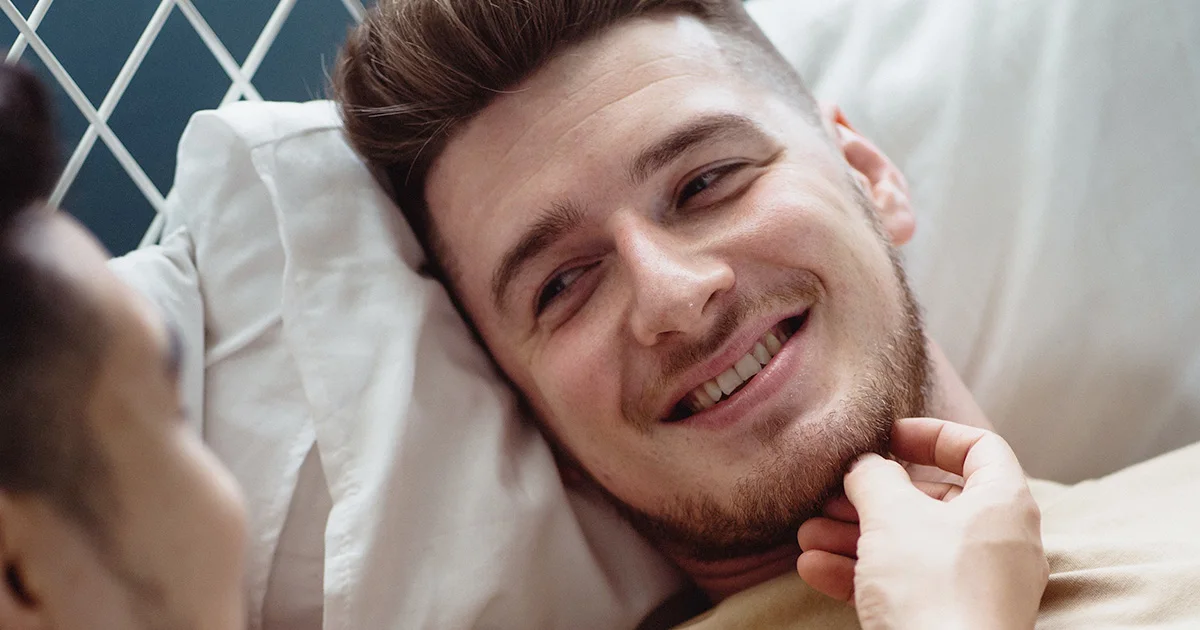Here's what we'll cover
Here's what we'll cover
Erectile dysfunction (ED) medications really work. The majority of men who take them report stronger, longer-lasting erections. But as with any medication, getting to the desired result may take some trial and error—and requires commitment. Here are some things you can do to make your ED medication more effective.
What is erectile dysfunction?
ED happens when you can't get or maintain an erection sufficient for satisfying sex. That might include erections that don't last as long as you want or aren't as firm as you'd like. ED is the most common sexual dysfunction: More than 30 million American men have experienced these kinds of erection problems (Nunes, 2012).
Common medication options for ED
Erectile dysfunction medications belong to a class of drugs known as phosphodiesterase type 5 (PDE5) inhibitors. They include sildenafil (brand name Viagra), tadalafil (brand name Cialis), avanafil (brand name Stendra), and vardenafil (brand names Levitra and Staxyn). These medications have similar modes of action: They block the chemical (called PDE5) that acts as an off switch for an erection, prompting blood to leave an erect penis.
How can you make ED medication more effective?
Don't eat heavy, fatty meals before sex
When you eat a big meal, blood flow naturally diverts to your stomach and intestines to help with digestion. That means there's less blood flow to give you a strong, long-lasting erection. A heavy meal may also give you heartburn or make you sleepy—two factors that can definitely influence your erection. Talk with your healthcare provider about whether you should take your ED medication on an empty stomach.
Time your meds right
One of the best ways to increase the effectiveness of ED medication is to take it properly. That means taking it at the right time according to your healthcare provider's instructions. Viagra takes about an hour to take effect and lasts for 6–8 hours. Cialis takes effect in about 1–2 hours but stays in your system for up to 36 hours. Time your medication accordingly (although these times may vary for you). The time it takes for ED medication to take effect and how long it lasts can be affected by some medical conditions and drug interactions. Be sure to talk to your doctor about how your health and any drugs you are taking may affect how your body reacts to your ED medication.
Adjust your dosage
Your healthcare provider determines the right dose for you based on your medical history, current health, and the medications and supplements you're taking. If you're not seeing the results you want, your healthcare provider may recommend trying the medication multiple times under different circumstances, or they may prescribe a higher dose. Always talk with a healthcare provider before taking a different dosage than what you were prescribed. And never take more than one dose a day.
Maintain a healthy lifestyle
Your erections will be optimal when you're healthy overall. That means getting regular exercise (men who are inactive or exercise infrequently have a higher risk of ED) (Janiszewski, 2009), following a healthy diet (concentrating on whole foods and limiting foods that are processed or high in saturated fat), avoiding tobacco and limiting alcohol to two drinks a day or less.
What are compounded or sublingual ED meds?
You might have come across ED medications online that are taken under the tongue, rather than being swallowed. These sublingual alternatives to ED pills often combine sildenafil and tadalafil, the active ingredients in Viagra and Cialis, which makes them so-called compounded medications.
When it comes to compounded ED treatments, mixing different ingredients—such as sildenafil and tadalafil—and putting them in a sublingual formulation is a unique treatment option for ED. With sublingual PDE5 inhibitors, the medication is absorbed directly into the bloodstream via the blood vessels under the tongue, rather than getting absorbed in the stomach. Small studies have shown that sublingual formulations of PDE5 inhibitors work in as little as 15 minutes, which is significantly faster than traditional ED pills. Traditional sildenafil pills also work more slowly if you take them with a big meal. But with sublingual versions, such as Ro Sparks, a meal won’t affect how fast it works.
Talk to your healthcare provider if you are interested in sublingual PDE5 inhibitors. Regardless of whether you take them as a pill or sublingual, PDE5 inhibitors are not safe for everyone.
DISCLAIMER
If you have any medical questions or concerns, please talk to your healthcare provider. The articles on Health Guide are underpinned by peer-reviewed research and information drawn from medical societies and governmental agencies. However, they are not a substitute for professional medical advice, diagnosis, or treatment.
Viagra Important Safety Information: Read more about serious warnings and safety info.
Cialis Important Safety Information: Read more about serious warnings and safety info.
Deveci, S., Peşkircioğlu, L., Aygün, C., et al. (2004). Sublingual sildenafil in the treatment of erectile dysfunction: faster onset of action with less dose. International Journal of Urology : Official Journal of the Japanese Urological Association, 11(11), 989-992. doi: 10.1111/j.1442-2042.2004.00933.x. Retrieved from https://pubmed.ncbi.nlm.nih.gov/15509203/
Janiszewski, P. M., Janssen, I., & Ross, R. (2009). ORIGINAL RESEARCH—ERECTILE DYSFUNCTION: Abdominal Obesity and Physical Inactivity Are Associated with Erectile Dysfunction Independent of Body Mass Index. The Journal of Sexual Medicine, 6(7), 1990–1998. doi: 10.1111/j.1743-6109.2009.01302.x. Retrieved from https://www.jsm.jsexmed.org/article/S1743-6095(15)32596-0/abstract
Nunes, K. P., Labazi, H., & Webb, R. C. (2012). New insights into hypertension-associated erectile dysfunction. Current Opinion in Nephrology and Hypertension, 21(2), 163–170. doi: 10.1097/mnh.0b013e32835021bd. Retrieved from https://www.ncbi.nlm.nih.gov/pubmed/22240443










